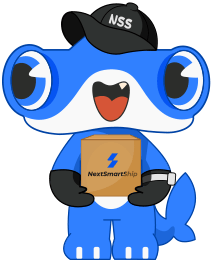What is a Shopping Cart?
A piece of software in an online retailer’s site that gets used to facilitate order purchases. It has payment processor integration to deduct the exact amount it costs to buy the product or service from the customer’s payment gateway.

There are several Software As A Service (Saas) providers of shopping carts you choose from if you are starting. Here are the top three;
- woocommerce – A WordPress plugin that powers by far the largest number of online stores. However, the learning curve for setting up a store is a bit steep.
- Shopify – Powering over 1000,000 million stores, it’s by far the best provider and beginner-friendly. You can get your online store up and running in minutes using their limitless customization feature.
- BigCommerce – If you are thinking of an industry-specific store, then Bigcommerce is the right provider.
Other shopping cart providers like Magento, Squarespace, and Opencart can be a good fit but require some technical knowledge of design.
Additionally, every platform has its pricing model. For instance, Shopify basic starts from $29/month and scales to an enterprise price of $299/month. Bigcommerce has a standard fee of $29.95/month, and the pro price is $299.95/month.
What is the Marketplace?
An online marketplace is an e-commerce website where products and services are sold by third-parties and bought by customers from different brands on store owners.
Amazon is the largest marketplace, with over 300 million users and 150 million prime members.
There are over 5 million Amazon sellers across all its marketplaces, with 66% of the top 10,000 sellers using Fulfillment By Amazon (FBA).
Walmart is the fastest-growing marketplace, with an increased estimate of 27% as of January 2020. In the U.S alone, it’s 2020 Q3 sales growth was up 79% from 41%
Other major marketplaces include;
Online shoppers are now 2.05 billion, and 49.2% of the sales get made through mobile devices. Whether you choose a marketplace or have your own branded store, buyers are looking for the best products delivered fast.
It would be best to have a checklist of elements online buyers are looking for before they buy your product. Here are some questions to answer;
- How fast can you deliver the products?
- Is your product pricing competitive?
- How is the quality of your products?
- Can you offer free shipping?
- How comfortable are your returns?
Who needs Shopping Cart?
First, you may be confused about which shopping cart provider to choose if you are starting. Consider your store specifications, design, pricing, and future growth before you select the store host.
Again, a provider with easy to set up customizable features should be top of your priority.
Here are some advantages as to why you may need a shopping cart;
- You get the control and flexibility of your store.
- You can provide customer service directly.
- Customization and personalization are easy on your store.
- The data obtained can be used to study customer behavior for sales optimization.
- It’s the best way to represent your brand on the web.
- You have upsell and cross-sell options for your range of products.
However, the branded store comes with challenges, especially for beginners;
- A high initial investment in resources and time.
- It’s expensive to drive traffic to your store.
- Running and maintaining a store as it scales may need more trained staff.
- You control orders and fulfillment from your inventory.
Why should you consider a Marketplace?
It’s a no brainer; most of these marketplaces have already built vast numbers of loyal customers.
Amazon, the largest marketplace alone, has 214.8 million people visit their site every month and 9 out of 10 online shoppers price check products on the platform before they buy.
They are followed by;
- Walmart 138 million
- eBay 106 million
- Target 88 million
- Etsy 66 million.
In addition to massive organic traffic, here are other advantages;
- You can create your store in minutes.
- The platforms have built immense trust from online shoppers.
- You have the chance to stand out from your competition in a nice or category.
- You can dropship easily with most platforms.
- Less administration for your store since the marketplace has automated most processes.
Marketplaces give room for easy integration with third-party fulfillment partners and FBM for Amazon merchants for fast delivery and easy returns.
But, they also have challenges that can limit you from scaling your store into a global brand. Here are some disadvantages with using online marketplaces;
- Discounts and offers get limited to each seller and the period they can run.
- Minimal customization for your products or store.
- Every transaction has a commission deduction for most platforms.
- There is stiff competition from other brands, including the marketplace with white label products.
- Direct customer service is minimal, making it hard to build a loyal customer base.
So, Shopping Cart or Marketplace?
Walmart (marketplace) partnered with Shopify( Shopping Cart provider) to expand the reach of growing brands to its more than 130 million monthly visitors.
What does this mean for merchants?
Having your shopping cart is essential for you to build a lasting brand.
To place your store on a marketplace gives you access to online shoppers and cut the cost of acquiring customers through paid ads.
80% of Amazon sellers sell on other platforms, starting with their online store, and eBay comes second.
If you are a beginner, considering a marketplace might be a great idea if you have a tight marketing budget. But you will need some knowledge on how the marketplace you choose works, including who are the major competitors in your category.
When you start to generate some sales and make a profit, you can spend some of it to build and optimize your shopping cart.
Finally, it’s essential to spread your risks, get both your store and create one on marketplaces to increase your purchases, but pay more attention to building your brand with a shopping cart.


